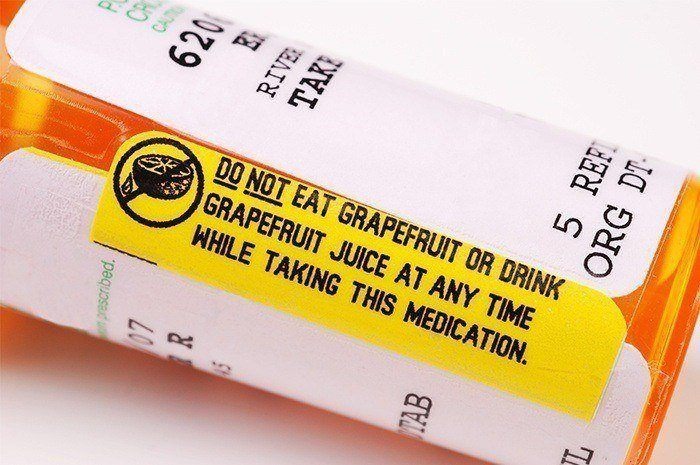Why Mixing Grapefruit And Prescription Drugs Can Be A Bad Idea
Grapefruit is a delicious, versatile citrus fruit, but this seemingly harmless fruit can have dangerous side effects when mixed with certain prescription drugs. More than 85 different drugs have potentially bad reactions with grapefruit, and 43 of those reactions are potentially fatal.
Why is grapefruit part of such a dangerous chemical cocktail? Shiew Mei Huang, acting director of the Food and Drug Administration, explains that, "The juice increases the absorption of the drugs into the bloodstream. When there is a higher concentration of the drug, you tend to have more adverse events." This reaction is caused by chemical compounds called bergamottin and 6', 7'-dihydroxybergamottin, which lessen the ability of enzymes to break down the drugs in the body, possibly causing blood levels of the drug to rise to a dangerous level. In some cases, absorption of the drug is blocked altogether, rendering it useless.
To make the problem more complex, the amount of the enzyme targeted by grapefruit varies in each person, meaning that grapefruit affects different drugs and different people in different ways. The juice of limes, Seville oranges, and even apples can sometimes have similar effects, but they are usually less drastic than those caused by grapefruit.
Among the drugs with which grapefruit should be avoided are Zocor, Lipitor, Pravachol, Viagra and Cialis, Xanax, Valium, Halcion, Cordarone, Multaq, and Nexterone. This is far from a complete list. Consumers are advised to consult their pharmacists or physicians to see if any drugs they take might react adversely with grapefruit, and to also read the medication guide or information sheet that accompanies their prescriptions.
